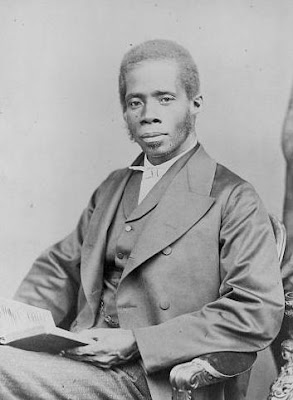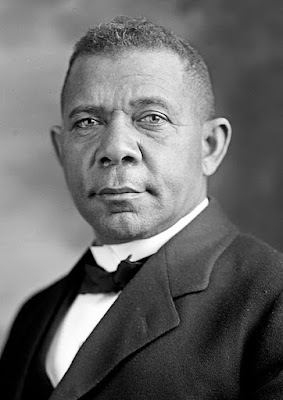
During the 1973 Yom Kippur War, a reporter asked Golda Meir about African leaders that were cutting off diplomatic ties with Israel under Arab pressure. The reporter claimed this proved that Israel's African policy and the aid given was a waste of time. Golda Meir disagreed:
Because what I did for Africa was not just a policy of enlightened self-interest. I did it for the benefit of the African peoples, and deep in their hearts they know this to be true. It was an expression of my deepest historic instincts as a Jew, and a demonstration of my most profound and cherished values as a Labor Zionist. [The Prime Ministers, by Yehuda Avner, p. 236]Golda Meir was not the first Zionist to speak about helping Africa.
Herzl's novel, Altneuland, describes his vision of what Jewish Palestine would look like. At one point, one of the characters declares:
There is still one problem of racial misfortune unsolved. The depths of that problem, in all their horror, only a Jew can fathom. I mean the negro problem. Don't laugh, Mr. Kingscourt. Think of the hair-raising horrors of the slave trade. Human beings, because their skins are black, are stolen, carried off, and sold. Their descendants grow up in alien surroundings despised and hated because their skin is differently pigmented. I am not ashamed to say, though I be thought ridiculous, now that I have lived to see the restoration of the Jews, I should like to pave the way for the restoration of the Negroes. [Translated from the German by Dr. D. S. Blondheim, Federation of American Zionists, 1916, available online]Herzl's desire for Blacks to be restored to their homeland was mutual.
In fact, Black support for the Jewish State predates Herzl.
In their book, Israel in the Black American Perspective, Robert G. Weisbord and Richard Kazarian start with a chapter on early Black support for the Zionist idea.
As early as the post-Civil War era, when Blacks were still too focused on their survival and that of their families to concern themselves with foreign affairs, there were still a few Black intellectuals and leaders who kept abreast of events overseas.
Some saw parallels between their own situation and that of the Jews -- and others saw Zionism and the return to the Jewish homeland as the paradigm for the transplanted Africans in the US.
Here is a summary of what the book describes about some of those leaders --
Edward Wilmot Blyden (1832-1912)
Blyden was born in St. Thomas in the Virgin Islands, which had a significant Jewish population, and later immigrated to West Africa in 1851. He was an editor, a prolific writer of books and pamphlets, a linguist, a professor of classics, secretary of state of the newly established republic of Liberia, Liberian ambassador to Great Britain and president of Liberia College. |
| Edward Wilmot Blyden. Public Domain |
As he describes in his book, The Jewish Question, while traveling in the Middle East in 1866, Blyden wanted to travel to "the original home of the Jews--to see Jerusalem and Mt. Zion, the joy of the whole earth." While in Jerusalem he went to the Western Wall.
Keep in mind that Theodor Herzl wasn't even born until 1860. Instead, this was the time of 'proto-Zionists' like Rabbi Zvi Hirsch Kalischer, who wrote Derishat Ziyon (Seeking Zion), and Moses Hess, who wrote Rome and Jerusalem -- both published in 1862.
Weisbrod and Kazarian write:
In point of fact, Blyden in the 1860's and 1870's was much more of a Zionist than most Jews. He advocated Jewish settlement in Palestine, a phenomenon which, in his judgment would not have an adverse effect on the Arabs. Blyden reproved the sons of Abraham for remaining in the Diaspora and for not migrating to their ancient homeland, which the Ottoman Turks were misgoverning.Towards the end of the 19th century, with the resurgence of antisemitism in Russia, France and Germany, that political Zionism came into its own with Herzl and his publication of The Jewish State in 1896. The First Zionist Congress followed in 1897.
Blyden's booklet, The Jewish Question, was published the following year:
Blyden was familiar with Herzl's Jewish State and predicted that it propounded ideas which "have given such an impetus to the real work of the Jews as will tell with enormous effect upon their future history." Blyden also commented on the powerful influence of the "tidal wave from Vienna--that inspiration almost Mosaic in its originality and in its tendency, which drew crowds of Israelites to Basle in August 1897...and again in 1898."However, Blyden also thought that if the timing was not right, the Jewish State could be established elsewhere as well. He felt that because of the shared suffering of Jews and African Americans, they were specially qualified to be spiritual leaders in the world.
So he invited Jews to come to Africa --
Africa appeals to the Jew... to come with his scientific and other culture, gathered by his exile in many lands, and with his special spiritual endowments.As it turned out, when the British offered Herzl land in Africa in 1903 for a state, that invitation was nearly accepted.
Booker T. Washington (1856-1915)
Booker T. Washington was such a celebrity during the latter part of his life that he was invited to have dinner with Theodore Roosevelt at the White House and to have tea with Queen Victoria. He was born into slavery, but despite the hardships, he taught himself the alphabet, got an education and went on to found the Tuskegee Institute, which he headed for 35 years.
 |
| Booker T. Washington. public domain |
In Russia there are one-half as many Jews as there are Negroes in this country and yet I feel sure that within a month more Jews have been persecuted and killed than the whole number of our people who have been lynched during the past forty years.
There is, perhaps, no race that has suffered so much, not so much in America as in some of the countries in Europe. But these people have clung together. They have had a certain amount of unity, pride and love of race.
I think it is with the African pretty much as it is with the Jews, there is a good deal of talk about it, but nothing is done, there is certainly no sign of an exodus to Liberia.
W.E.B Du Bois 1868-1963
 |
| W.E.B Du Bois Public Domain |
The African movement means to us what the Zionist movement must mean to the Jews, the centralization of race effort and the recognition of a racial fount. To help bear the burden of Africa does not mean any lessening of effort in our problems at home. Rather it means increased interest. For an ebullition of action and feeling that results in an amelioration of the lot of Africa tends to ameliorate the conditions of colored peoples throughout the world. And no man liveth unto himself.
o In the first issue, he told his readers about the new Jewish state planned "'round about Jerusalem"o Eight months later, he told them that a "great Zionist congress of the Jews is meeting in London"o He also noted proposals to "tax the Jews all over the world for the support of the new Jewish government in Palestine"o In January 1921, he wrote about the finished blueprints for a Hebrew university on the biblical Mount of Olives in Jerusalemo In 1929, he wrote about the "murder of Jews by Arabs in Palestine."
young and forward thinking Jews, bringing a new civilization into an old land and building up that land out of the ignorance, disease and poverty into which it had fallen, and by democratic methods to build a new and peculiarly fateful modern state.
The valiant struggle of the people of Israel for independence serves as an inspiration to all persecuted people throughout the world. We havil the establishment of the new State of Israel and welcome it into the family of nations.'
Marcus Garvey 1887-1940
Negro Empire where every Black man, whether he was born in Africa or in the Western world, will have the opportunity to develop on his own lines under the protection of the most favorable democratic institutions.
Garvey saw Africa as a nation to which the African peoples of the world could look for help and support, moral and physical when ill-treated or abused for being black.
 |
| Marcus Garvey. Public Domain |
A new spirit, a new courage, has come to us simultaneously as it came to other peoples of the world. It came to us at the same time it came to the Jew. When the Jew said 'We shall have Palestine!' the same sentiment came to us when we said' We shall have Africa!'
Walter White 1893-1955
 |
| Walter White. Public Domain |

 Elder of Ziyon
Elder of Ziyon























